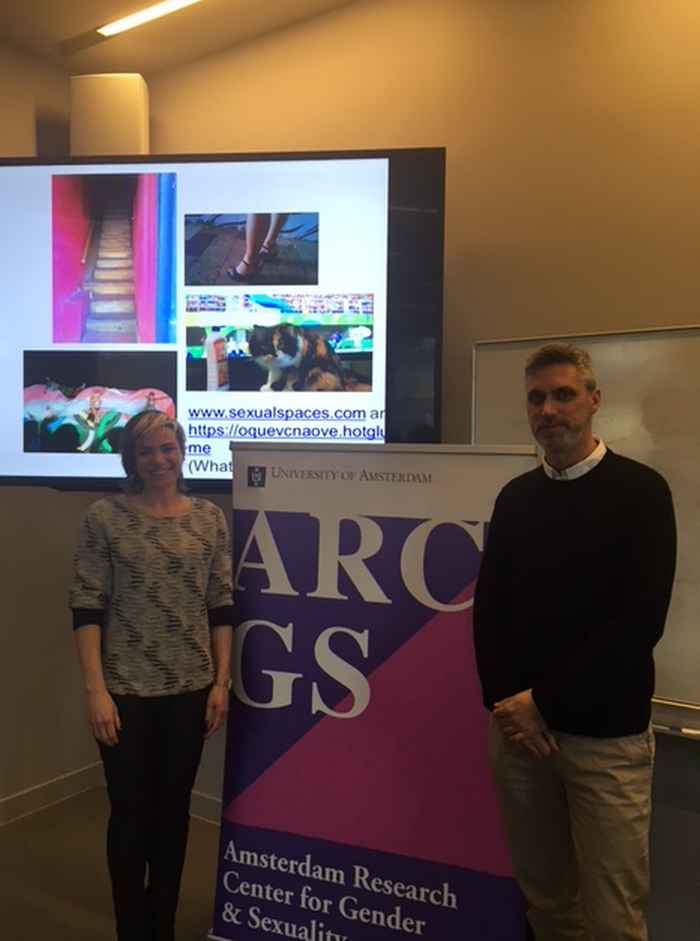The Repression of Sex Work in the Context of Urban Mega-Events
By Simone Schneider

Urban changes due to sport mega-events
As Hubbard demonstrated, sport mega-events are preceded by enormous preparatory measures and are accompanied by large urban changes which go along with spatial displacements and territorial negotiations. Hubbard elaborated on how ongoing legal measures and authoritative regulations regarding the sex work sector varied enormously in the past between different host cities and local authorities. In the case of Rio de Janeiro, the preparations conducted before, as well as during, the mega-event shaped the urban spaces and locational settings within which sex work takes place and becomes visible. Sexualized and racialized minorities were particularly framed as deviant victims and targeted within urban relocation processes. According to Hubbard, the measures undertaken due to authorities’ interests within the context of a sports mega event resulted in the spatial displacement of some forms of sex work. Nethertheless, those impacts cannot be understood as merely restrictive and one-sided repressions, as individuals located within sex economies developed strategies and practices to deal with and negotiate those displacements. In the midst of those processes, sex workers acted as creative entrepreneurs trying to pursue their occupations even within the partially repressive context of the World Football Cup and Summer Olympics.
Sex work and urban policy
Prior to the World Football Cup, prostitution in Rio faced more intensive surveillance and restrictions, usually initiated by municipal authorities. Yet, the surveillance and restrictions varied across different locales, resulting in highly varying degrees of tolerance towards different areas and forms of sex work. As such, while certain bodies located within the context of sex work were framed as deviant and used to justify the erasure of sex economics in certain areas, other (erotic) bodies functioned as essential frames in constructing specific national (erotic) narratives of Brazil. While in some zones of Rio de Janeiro sex workers faced increased amounts of municipal harassment and surveillance as a consequence of the world cup preparations, restrictions were not extensively heightened in other urban territories.
Different zones, different impacts
Hubbard described different territorial areas located in Rio de Janeiro to explain the locational variance with regards to the impact of the World Football Cup and Olympics on sex work. Before the sport mega-events, police stations and ongoing prostitution would in several occasions even operate within close proximity, as in the zone of Niterói, due to the payments made by sex workers to police officers. Yet, in the face of growing real estate investments prior to the world cup, the police implemented various restrictive and punitive measures on the local sex economy, instigating brothel raids. As a result, sex workers kept on working in sex economies but settled in different environments where they did not have to face such persistent harassment or high fines for sex work. Moreover, the resettlement was also driven by relocations to areas populated with more (male) tourists and potential customers to increase chances of generating income and possibly benefit from sports tourist streams.
Similarly, sex workers continuously kept on working in other zones, such as Vila Mimosa or Copacabana, despite facing ongoing threats of eviction by legal authorities. While sex work was seen in some areas of Rio de Janeiro as a legitimate form of labour before the world cup, the visible hosting of sex venues in the context of preparations for the mega-event put venue owners in danger of being harassed and shut down by local authorities. The latter appeared eager to restrict ongoing sex economies in certain areas through the closing of several sex venues, such as specific bars where many women active in sex economies were located. Those repressions resulted in spatial shifts of sex workers and constant resettlements, as women were subsequently pushed into other areas.
Agency within the sex work sector
As Hubbard concluded, the example of Rio de Janeiro’s Olympics and the 2014 World Football Cup depicts the locally varying impact of sport mega-events on those active in the sex work sector. In Rio de Janeiro, not all sex work was portrayed as deviant and condemnable – instead, authoritative measures varied depending on territorial frames and locational settings. Within those diverse environments, individuals working in the sex economy constantly carved out new ways and strategies to pursue their occupation and avoid legal confrontations.
Reference:
De Lisio, A., Hubbard, P., & Silk, M. (2018). Economies of (Alleged) Deviance: Sex Work and the Sport Mega-Event. Sexuality Research and Social Policy, 1-11.